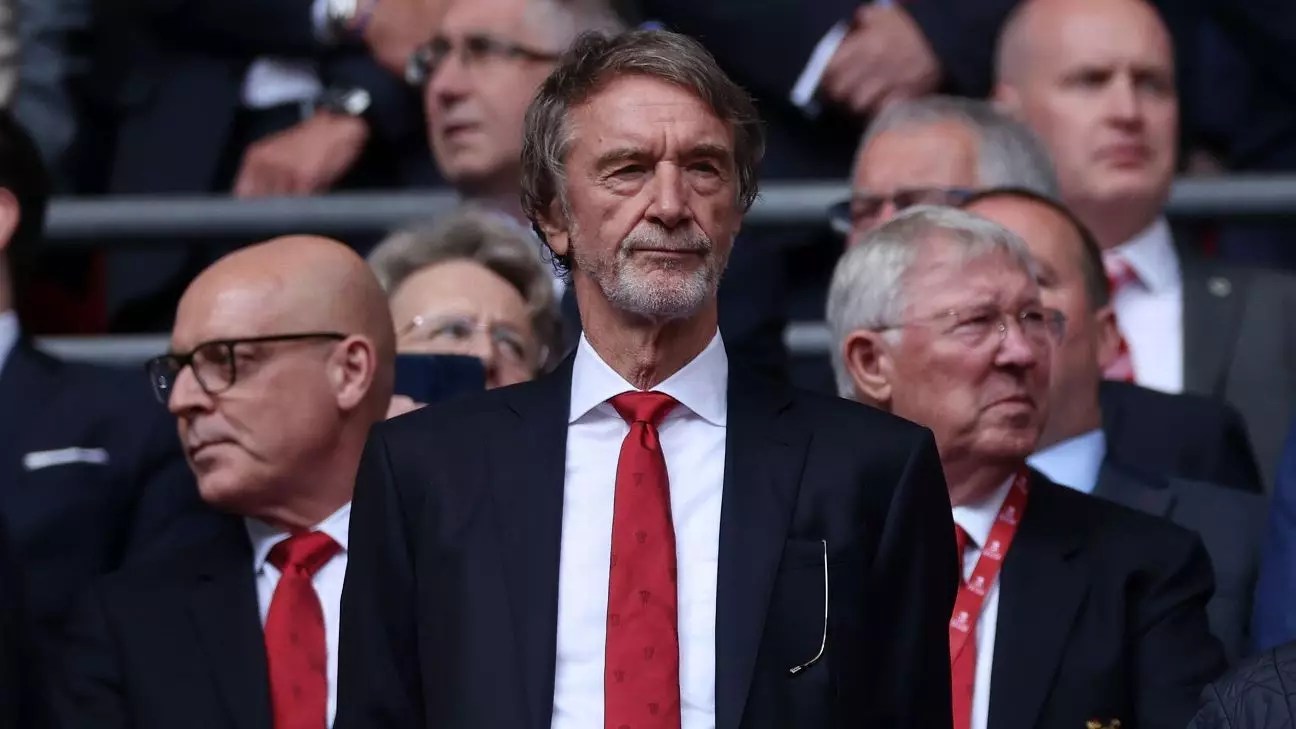The iconic Manchester United Football Club is grappling with a turbulent chapter in its storied history. Sir Jim Ratcliffe, a prominent British industrialist who recently acquired a significant stake in the club, is adamant that transformative changes are imperative for reclaiming the club’s former glory. His assertion that Manchester United must confront “difficult and unpopular decisions” has sent ripples through the football community, indicative of the stark challenges that lie ahead. Ratcliffe’s ambition to dethrone the likes of Manchester City and Liverpool marks a critical goal, yet the path to recovery is fraught with obstacles.
Under the leadership of Erik ten Hag, the club’s fortunes initially appeared to be on the mend. However, the club shockingly parted ways with him amid mounting pressure as they teetered on the brink of an unprecedentedly poor finish in the Premier League. This season, though the introduction of new manager Ruben Amorim has sparked some hope, Manchester United currently finds itself in the murky depths of the league standings. Ratcliffe’s candid remarks paint a bleak picture; he characterizes the club’s present condition as “mediocre,” a stark contrast to its long-cherished status among the elite of football.
Ratcliffe’s observations reflect a broader issue plaguing the club: a disconnection between its proud legacy and its current performance. His call for difficult decisions indicates a willingness to disrupt the status quo in pursuit of improvement. Redundancies among nearly 25% of the club’s workforce this summer further illustrate a stark shift toward austerity, aimed at reallocating resources to bolster team performance on the field. Such measures, while arguably necessary, are fraught with emotional and ethical implications, especially when considering the livelihoods affected.
In a move that shocked many fans, the club also opted to relieve Sir Alex Ferguson of his ambassadorial role—an emblem of continuity and respect bridging past success and current endeavors. Ferguson’s impact on the club’s identity and success can hardly be overstated; his departure from an influential position raises questions about the management’s commitment to preserving its rich heritage. While not uncommon in sports management, this decision, coupled with the broader restructuring, warrants close scrutiny regarding how the club balances historical significance with the demands of modern-day competitiveness.
As Manchester United navigates through this pivotal moment, it faces a critical juncture between tradition and transformation. Ratcliffe’s unyielding commitment to change, despite the backlash it may invoke among supporters, reflects the harsh realities confronting clubs in contemporary football. With the shadow of mediocrity looming, Manchester United stands at a crossroads; the decisions made in the coming months will undoubtedly define its trajectory. Fans and stakeholders alike must brace for potential upheavals as the club endeavors to reclaim its position as one of the prominent forces in English and European football. Only time will tell if these bold steps will restore the Red Devils to their rightful place in the footballing pantheon, or if they will spiral further into obscurity.


Leave a Reply